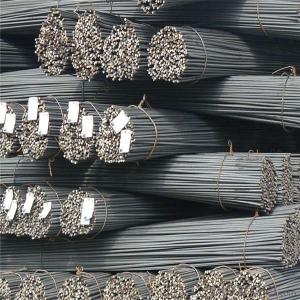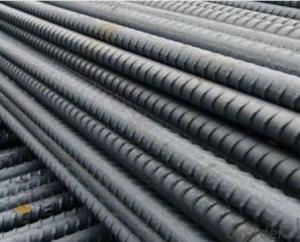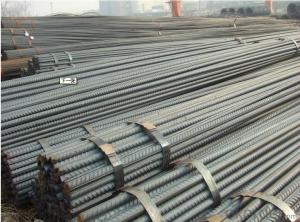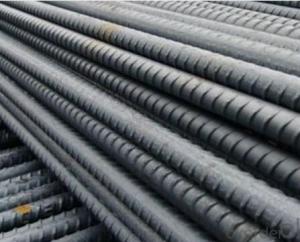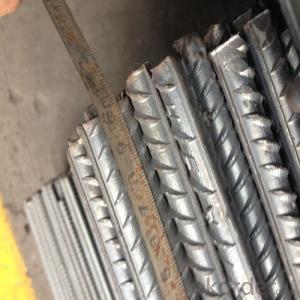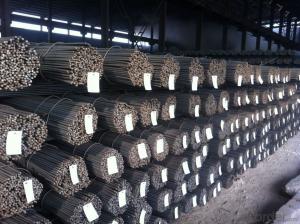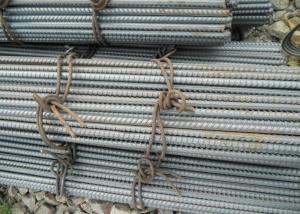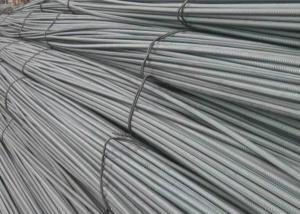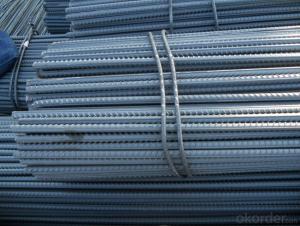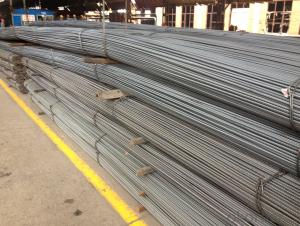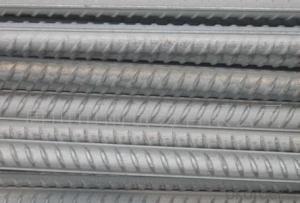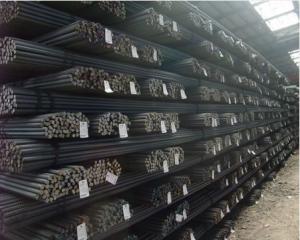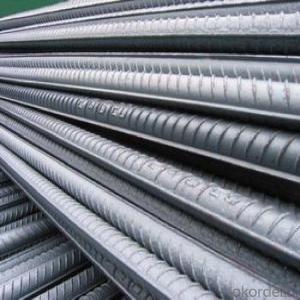Rebar Steel 12mm Grade HRB400 HRB500 China mill
- Loading Port:
- Tianjin
- Payment Terms:
- TT OR LC
- Min Order Qty:
- 100 m.t.
- Supply Capability:
- 19000 m.t./month
OKorder Service Pledge
OKorder Financial Service
You Might Also Like
Item specifice
Deformed Steel bar is a common steel reinforcing bar, used in reinforced concrete and reinforced masonry structures.
It is formed from mild steel, and is given ribs for better frictional adhesion to the concrete. The Deformed Steel bar is an
iron rod , a weldable plain reinforcing steel bar, and can be used as well for steel meshes.
Features
1、Pure steel quality, stable chemical contents, small tolerance.
2、Constant Quality, good drawing performance.
3、High dimension accuracy degree, accuracy degree of Level C up to 80%, smooth surface, less scale, easy to be pickled.
4、Automatic bundling with 4 lines by Machine in tidy and good looks
5、Big high quality percentage, small coil percentage, and heavy coil weight for Hard Coil.
6、High sorbitizing percentage.
Product Description :
Chemical composition (%): | Steel | C | Si | Mn | P | S | Ceq | ||||
HRB335 |
0.25 |
0.80 |
1.60 |
0.045 |
0.045 | 0.52 | |||||
HRB400 | 0.54 | ||||||||||
HRB500 | 0.55 | ||||||||||
Mechanical properties | Steel | Rel/ MPa | Rm/ MPa | A/ % | Agt/ % | ||||||
≥ | |||||||||||
HRB335 | 335 | 455 | 17 |
7.5 | |||||||
HRB400 | 400 | 540 | 16 | ||||||||
HRB500 | 500 | 630 | 15 | ||||||||
Package: | Standard export packing or as customer's request | ||||||||||
Application: | Construction, building, bridge, road. ect | ||||||||||
Payment terms | 1).100% irrevocable L/C at sight. | ||||||||||
Delivery time | 15-30 days after receipt of L/C or deposit by T/T | ||||||||||
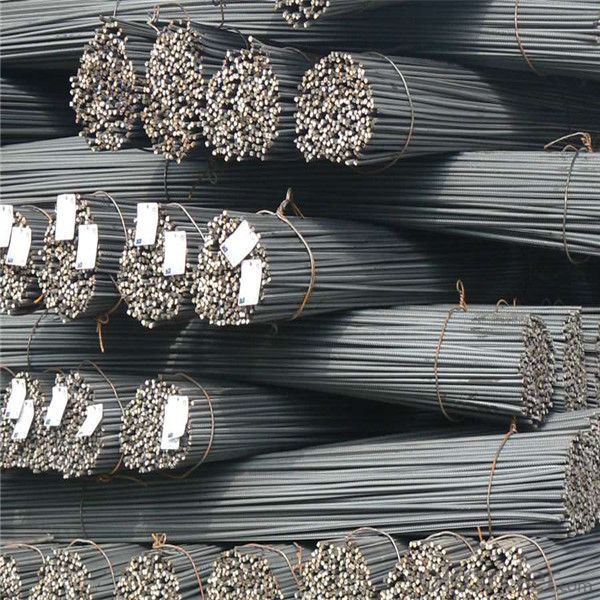
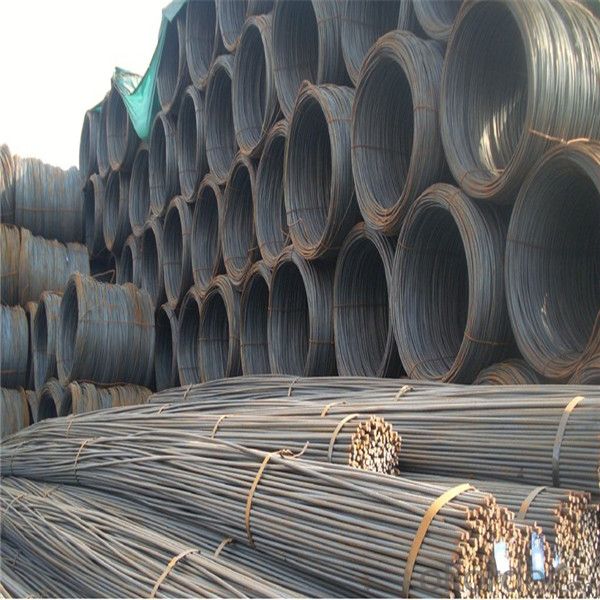
Packing:
In bundles, each bundle weight 3.5 tons. Load by container or by bulk verssel.
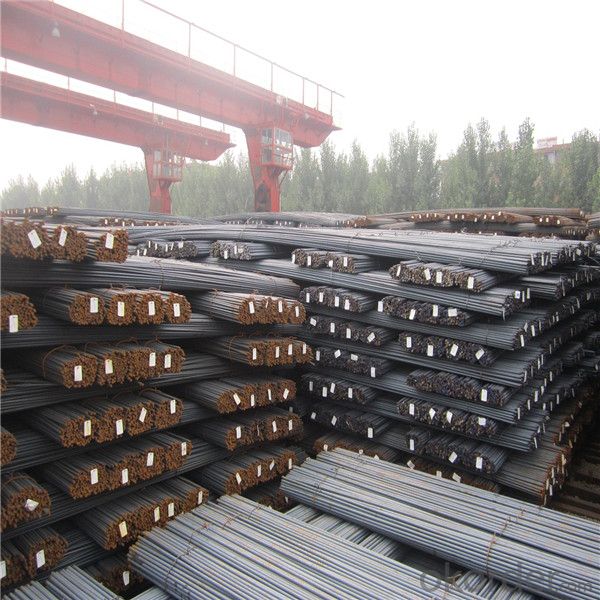
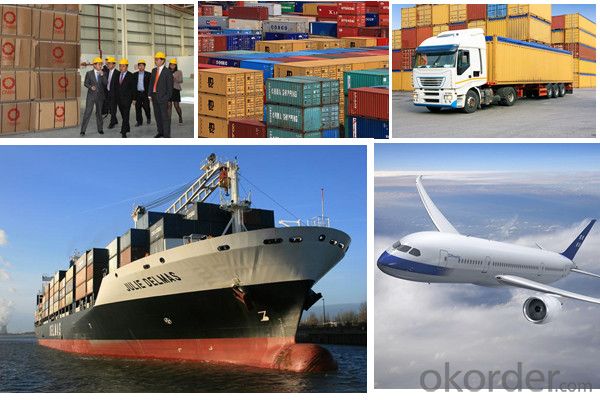
Our service
(1) We cooperate with famous factories with advanced equipment and well trained workers.
(2) We can provide factory price with trading company service.
(3) We continuously work on the improvement of our processes, guaranteeing consistently high standards
of quality to keep none compensation.
(4) We guarantee 24 hours response and 48 hours solution providing service.
(5) We accept small order quantity before formal cooperation.
(6) We deliver the agreed quality at the agreed time, reacting to changes in customer wishes in a flexible way.
(7) Due to our volume and selling power, we have excellent freight rates with shipping lines.
(8) We strive to always be fair and honest in our dealings with customers.
(9) We strive to work together with customers to achieve much more than we can achieve alone.
(10) Through our passion and commitment we aim to be a market leader in all our key markets. To maintain
our position as market leader we must continue to add value in all that we do.
FAQ:
1.Q: What's your MOQ(minimum order quantity)?
A: One full container, mixed acceptable .
2. Q: What's your packing methods?
A: Packed in bundle or bulk ..
3. Q: How can I buy CNBM products in my country?
A:Please send us an inquiry or email ,we will reply to you if there is distributor in your country
4. Q: Can we visit your factory?
A: Warmly welcome. Once we have your schedule, we will arrange the professional sales team to follow up your case.
5. Q: How long does it take to get the product if i place an order?
A:With the process of your requirements,we will pack and deliver in 3-7 days. If it is by sea shipment,it will take 15-45 days depending on different locations
- Q:Can steel rebars be used in combination with other reinforcement materials?
- Combining steel rebars with other reinforcement materials is a common practice in construction projects. Steel rebars provide tensile strength and improve overall structural integrity in reinforced concrete structures. However, additional reinforcement materials may be needed in certain cases to meet design requirements or overcome unique construction challenges. For example, in areas with high seismic activity, it is important to prioritize flexibility and ductility. In these situations, steel rebars can be combined with materials like fiber-reinforced polymer (FRP) bars or carbon fiber-reinforced polymer (CFRP) strips. These materials offer increased strength and flexibility, enhancing the structure's ability to withstand seismic forces. Furthermore, when corrosion is a concern, steel rebars can be used alongside corrosion-resistant materials such as stainless steel rebars or epoxy-coated rebars. These materials form a protective barrier, preventing direct contact between the steel rebars and moisture or corrosive agents. Moreover, in specialized applications like precast concrete elements or composite structures, steel rebars can be used in conjunction with other reinforcement materials like prestressed tendons or structural fibers. This combination allows for load redistribution and ensures optimal structural performance. In conclusion, combining steel rebars with other reinforcement materials is an effective way to meet specific construction requirements, improve structural performance, and address challenges related to seismic activity, corrosion, or specialized applications.
- Q:What is the effect of carbon content on the strength of steel rebars?
- The carbon content in steel rebars has a significant effect on their strength. Generally, a higher carbon content leads to increased strength and hardness in the steel rebars. This is because carbon atoms form strong chemical bonds with iron atoms in the steel matrix, resulting in a more rigid and durable material. When carbon is added to the steel, it forms carbides, which are crystalline compounds that make the steel harder and stronger. The presence of these carbides increases the resistance of the steel rebars to deformation, making them suitable for applications that require high strength, such as in construction and infrastructure projects. However, it is important to note that there is a limit to how much carbon can be added to the steel rebars to improve their strength. Excessive carbon content can make the steel brittle and susceptible to cracking under stress. This is because the excessive carbon atoms can form large carbide clusters, weakening the overall structure of the steel rebars. Therefore, the carbon content in steel rebars needs to be carefully balanced to achieve the desired strength and toughness. Depending on the specific application and requirements, different carbon levels can be used to optimize the strength and performance of the steel rebars. In conclusion, the carbon content has a direct impact on the strength of steel rebars. Increasing the carbon content can improve their strength and hardness, but excessive carbon levels can lead to brittleness. Thus, finding the right balance of carbon content is crucial to ensure the optimal strength and performance of steel rebars in various construction applications.
- Q:8 mm thread steel, how much is a bundle?
- Steel is commonly known as hot rolled ribbed bar, belonging to the small steel steel, mainly used for steel reinforced concrete structure frame. In use, some mechanical strength, bending deformation property and welding performance are required.
- Q:How are steel rebars measured and priced?
- Steel rebars are measured and priced based on their weight and length. The weight of a steel rebar is usually measured in pounds or kilograms, while the length is measured in feet or meters. The weight of a rebar is determined by its diameter, which is typically measured in millimeters or inches. To calculate the price of a steel rebar, the weight is multiplied by the cost per unit weight. The cost per unit weight can vary depending on factors such as the type of steel used, the market demand, and the supplier. This price is usually quoted in terms of cost per pound or cost per kilogram. In addition to the weight and length, other factors may also influence the pricing of steel rebars. These can include factors such as the grade of steel, the manufacturing process, and any additional treatments or coatings applied to the rebar. It is important to note that the pricing of steel rebars can vary from supplier to supplier, so it is advisable to obtain multiple quotes and compare them before making a purchasing decision.
- Q:Are steel rebars suitable for reinforcement in historical monuments?
- Steel rebars may not be suitable for reinforcement in historical monuments. The use of steel rebars can cause damage to the structural integrity and aesthetics of these monuments. Traditional materials and techniques that are compatible with the existing structure should be considered instead, to ensure the preservation and authenticity of these historical sites.
- Q:How do steel rebars affect the overall fire safety of concrete structures?
- Steel rebars can have both positive and negative effects on the fire safety of concrete structures. On one hand, steel rebars help to enhance the structural integrity of concrete by providing reinforcement and preventing collapse during a fire. However, steel has a high thermal conductivity, which means it can transfer heat quickly, potentially accelerating fire spread and compromising the stability of the structure. To mitigate these risks, additional fire protection measures, such as fire-resistant coatings or enclosures, should be implemented to enhance the overall fire safety of concrete structures with steel rebars.
- Q:How do steel rebars contribute to the overall strength of a structure?
- Steel rebars contribute to the overall strength of a structure by providing reinforcement to concrete. When embedded within the concrete, rebars enhance its tensile strength, preventing cracks and failure under tension. This reinforcement helps the structure withstand external forces, such as wind, earthquakes, or heavy loads, ensuring its stability and durability.
- Q:Are there any environmental concerns related to steel rebars?
- Yes, there are some environmental concerns related to steel rebars. The production of steel involves the extraction of iron ore, which can lead to habitat destruction and deforestation. Additionally, the steel industry is known to be a significant contributor to greenhouse gas emissions. However, steel rebars are a common and necessary material in construction, and efforts are being made to mitigate these environmental impacts through recycling and energy-efficient production methods.
- Q:Can steel rebars be used in structures with limited construction budget?
- Indeed, structures with a limited construction budget can incorporate steel rebars. The utilization of steel rebars is widespread in construction due to their robustness and durability. They contribute to the support and reinforcement of concrete, enhancing its resistance to tension and cracking. Although steel rebars may entail higher initial expenses in comparison to alternative materials, they present long-term economic benefits. By employing steel rebars, structures can enjoy an extended lifespan, thereby reducing the necessity for frequent repairs or replacements. Moreover, the prefabrication of steel rebars saves time and labor costs during the construction process. Additionally, steel rebars can be effortlessly recycled, rendering them a sustainable preference for construction projects. The recycling of steel diminishes the requirement for extracting raw materials and lessens the environmental impact. All in all, steel rebars represent an exceptional option for structures operating within limited construction budgets. They provide durability, longevity, and cost savings in the long run, thereby constituting a financially prudent choice for construction projects.
- Q:Can steel rebars be used in structures with curved or irregular shapes?
- Yes, steel rebars can be used in structures with curved or irregular shapes. The flexibility and malleability of steel allow rebars to be bent and shaped according to the desired design, making it suitable for various architectural and engineering applications.
1. Manufacturer Overview |
|
|---|---|
| Location | |
| Year Established | |
| Annual Output Value | |
| Main Markets | |
| Company Certifications | |
2. Manufacturer Certificates |
|
|---|---|
| a) Certification Name | |
| Range | |
| Reference | |
| Validity Period | |
3. Manufacturer Capability |
|
|---|---|
| a)Trade Capacity | |
| Nearest Port | |
| Export Percentage | |
| No.of Employees in Trade Department | |
| Language Spoken: | |
| b)Factory Information | |
| Factory Size: | |
| No. of Production Lines | |
| Contract Manufacturing | |
| Product Price Range | |
Send your message to us
Rebar Steel 12mm Grade HRB400 HRB500 China mill
- Loading Port:
- Tianjin
- Payment Terms:
- TT OR LC
- Min Order Qty:
- 100 m.t.
- Supply Capability:
- 19000 m.t./month
OKorder Service Pledge
OKorder Financial Service
Similar products
New products
Hot products
Related keywords
